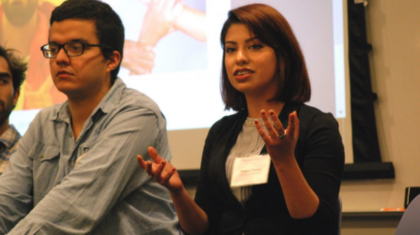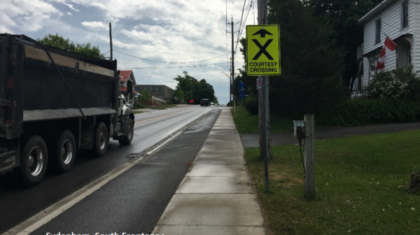#WalkBikeForward: Join us on our journey honoring key moments and people that have shaped our field as we celebrate 20 years of creating active, healthy communities.

Gabe Klein — former transportation department director in Chicago and Washington — is now a Co-Founder of CityFi, an advisory firm to cities and companies on urban change management. He is also a Special Venture Partner at Fontinalis Partners, a venture capital firm focused on next generation mobility co-founded by Bill Ford, Executive Chairman of the Ford Motor Company.
Transformation of Towns and Cities
The move back to cities has been huge in recent years. My generation — Generation X — pushed back on the idea that you hit 30 and move to the suburbs. This raised a lot of questions for cities about what they wanted to be in the future.
Around 2000 you started to see bike lanes going into select cities and towns. And then the advent of bikeshare systems was one of these sea-change moments in the evolution of the re-mainstreaming of active transportation.
That’s when people also started doing the math. “Wow, I spend $900 a month to use my car a few times a week.” But with bikeshare, car share, biking, transit, walking, you have a lot of choices. Maybe you don’t need to own a car. You may just need your feet and a bus, with occasional services of bikeshare, Lyft and carshare.
There’s something happening in America today as mayors and leaders in towns of all sizes are thinking differently about how to create more livable places. It’s not just cities anymore. A lot of suburbs are urbanizing now because they want to grow and can’t grow out anymore, so they’re growing up.
Creating Towns and Cities Where We Really Want to Live
Now is the time to figure out the kind of city or town we want to live in — complete with great public spaces, unplanned quirks and fun — and then design our transportation system around these goals.
I’m hopeful we will focus on walking and biking for a lot of trips in our own communities, where in the future we will be producing more of the goods and services at the point we use them. Then we’ll depend on high-quality transit and autonomous vehicles to connect with other communities.
Autonomous transportation will bring some big changes. It may be that only every third street even has cars allowed on it. There may be 2–4 seat autonomous Lyfts for people in an area with more scattered housing, which link them to commuter rail. In cities, 54-seat autonomous vehicles run on major thoroughfares, with bikes and two-feet ruling the neighborhood streets. I can dream right? No, let’s create the reality. It’s up to us!
Boosting Bikeshare in Washington and Chicago
I never knew what Alta was until 2010, when they were the sole bidder for operations on the bikeshare system in Arlington County Virginia and Washington, DC. They were very entrepreneurial and willing to take on this whole new thing that was very undefined. It was planned and executed very well between the public and private sector (and multiple jurisdictions). That was one of the reasons it turned out so well. Washington and Chicago, where Alta also was the operator, are still the two biggest and financially sustainable bikeshare systems in the country. I give them credit for an excellent team, great ramp-up, and a strong outcome.


